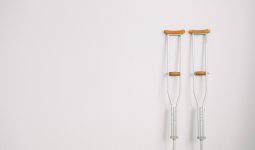Did you know that hospitals, birthing facilities, and healthcare professionals still disagree on eating during labor? This article will clarify the pros and cons of eating during labor.
Because of the potential for aspiration while under anesthesia , which first became a worry in the 1940s, many institutions still enforce a “no eating” policy for pregnant women in labor.
However, according to recent studies, low-risk pregnant women may benefit greatly by eating and drinking while giving birth.
According to research, rather than enforcing a general rule, it is possible to decide individually who can and cannot eat while giving birth.
Those working while eating should be aware of the best dietary recommendations.
All pregnant women should know the pros and cons of eating during labor.
The American Society of Anesthesiologists has published research that found that most healthy women would benefit from having a light meal during labor. This is good news for women who are in labor and delivery.
According to the study, women have generally been advised to refrain from eating or drinking during labor out of worry that they would aspirate or inhale fluids or food into their lungs, which can result in pneumonia.
However, thanks to improved anesthesia care, most healthy women are now unlikely to experience this issue.
Researchers examined the literature from hundreds of studies and concluded that restricting food and liquids may not be necessary for many laboring women.
Despite a shift in regulation, eating during labor has pros and cons.
Pros of Eating During Labor
1. Increased Energy
If there’s one time in your life when you need all the energy you can manage, it’s when you’re giving birth to a child.
Yet if the going gets rough, you probably won’t want to eat. Therefore, high-energy snacks should be consumed in the beginning.
Load up on complex carbs (like grains and pasta) during the early stages of labor so that they can give a slow, constant release of energy for the hours of labor that will come.
Eat or drink simple carbohydrates that swiftly leave the stomach and boost energy in the later stages of labor, such as fruits, juices, and honey. Some women also eat energy bars during labor.
2. Comfort While Waiting
Your patience won’t be at its best at the beginning of labor, especially if it’s your first child.
Not only is your excitement over the roof but first babies aren’t typically born quickly.
There will be a lot of waiting because this excitement corresponds with checking in at the hospital as soon as possible.
These situations would benefit most from this policy change, such as one where a woman would be sitting around in a hospital room with a growling stomach.
According to research co-author Christopher Harty, anesthesiologists and obstetricians should collaborate to evaluate each patient individually.
“Those deemed low risk for aspiration can probably consume a small meal while giving birth.
This provides expecting mothers with more birthing options. It also keeps them from going calorie-deficient, which helps them have more energy throughout labor.
3. Hydration
Low-risk pregnant women in labor should be allowed to drink clear beverages, according to the American College of Obstetricians and Gynecologists (ACOG).
It is possible to become dehydrated during childbirth and need intravenous (IV) hydration.
However, given that unneeded IVs might limit movement, many women in labor prefer to avoid them. You may not need an IV if you can consume fluids and stay hydrated orally.
Cons of Eating During Labor
1. Nausea and Vomiting
The pain, nausea, and vomiting are lower-level risks that don’t lead to a medical emergency.
Food sits in pregnant women’s stomachs and may cause pain because pregnant women digest food more slowly than non-pregnant women.
An epidural might cause vomiting as a side effect of low blood pressure.
Due to these hazards, you should only eat pregnancy-friendly meals that you ate during your nine-month pregnancy before going to the hospital.
Dr. Sears advises bringing foods and beverages that were tried-and-true favorites throughout the early, queasy months of pregnancy. “You are more likely to be able to digest foods that you could handle back then.
Avoid fried, gassy, and carbonated foods and drinks since your internal organs already have plenty to do without being overworked.
1. Risk of Aspiration
The risk of aspiration is still present, even if it’s lower than before. It’s important to remember that the risk of aspiration increases with the amount and type of food consumed.
It’s best to avoid fatty or fried foods and carbonated drinks, which can increase the risk of aspiration.
Eating too much can also lead to nausea and vomiting, which can be uncomfortable during labor.
2. Increased Risk of Infection
Eating during labor increases the risk of infection, as food particles can enter the uterus and cause an infection.
This is especially true if the woman has a C-section or surgery. It’s important to remember that even if the risk is low, it’s still present.
3. Serious Medical Risk
Although many women in labor think it’s absurd to fast when pregnant, risks are involved if labor develops into a major one.
Some patients require intubation and general anesthesia because of the seriousness of the situation or because it is difficult to execute a spinal or epidural correctly.
This new study will provide some gray areas for physicians and patients. The decision to eat before the baby or wait until after delivery will depend on a woman’s health history, risk of needing a c-section, and stage of labor rather than a rigid “no.”
What to Eat During Labor?
What to eat during labor will guide you, as will the pros and cons of eating during labor. It’s preferable to follow your hunger as long as it’s reasonable.
Remember that eating foods with a lot of fat can make you feel bloated and ill in your stomach.
Easy to consume and to provide a rapid energy boost, sugary foods may leave you feeling depleted.
Wholegrains, in particular, are ideal for eating during labor since they are easily digested and provide a steady release of energy. This can help you get through contractions.
A few excellent choices are:
Sandwiches on bread, naan, or chapati, cereals, pasta, fruit, and veg; plain crackers or cookies; almonds;
Rather than eating a single large meal, eat small meals frequently.
You are more likely to vomit if you’ve eaten a substantial meal because of the pressure your growing baby puts on your stomach and the spike in pregnancy hormones.
If you find it difficult to eat much, you could attempt to give yourself a little energy boost by sucking on some sweets.
Your midwife or doctor may be able to administer an antiemetic injection to you if labor is making you queasy to lessen your nausea.
It’s important to know that your birth partner must also stay energetic. Please encourage them to take frequent eating breaks because labor can be exhausting and lengthy.
Pack ready-to-eat foods like fruit, almonds, energy bars, or popcorn in your hospital bag as a top recommendation.
They can be useful for you or your spouse to have on hand for quick snacks before, during, or after giving delivery.
What to Drink During Labor?
Labor is thirsty work, and delivery rooms are typically warm. As a result, you’ll want to drink something.
Do not be concerned if you need to relieve yourself. Walking to the bathroom is a great method to stay active during labor.
Isotonic beverages are a suitable choice at this moment. Isotonic drinks have salt and sugar concentrations comparable to those in the human body.
They are especially advised for labor because they are easily absorbed and give your body the proper energy for the upcoming physical demands.
The packaging of many popular sports drinks will indicate if they are isotonic.
Before going into labor, you may visit your neighborhood store and sample a few flavors to select the one you enjoy.
Otherwise, sticking with water or mild squash would be best. You might also try sucking on ice chips.
This can help you chill off and improve your fluid intake simultaneously if it’s possible where you’re giving delivery.
These pros and cons of eating during labor will enlighten you of the benefits and risks.
Eating during labor can provide comfort and energy to the mother, but it is important to be aware of its risks.
Small amounts of pregnancy-friendly foods that have been tried and tested throughout the pregnancy are recommended.
It is also important to avoid fatty or fried foods and carbonated drinks, as these can increase the risk of aspiration.
Finally, it is important to remember the pros and cons of eating during labor.
Also, eating during labor increases the risk of infection, so it is important to be aware of this risk.







